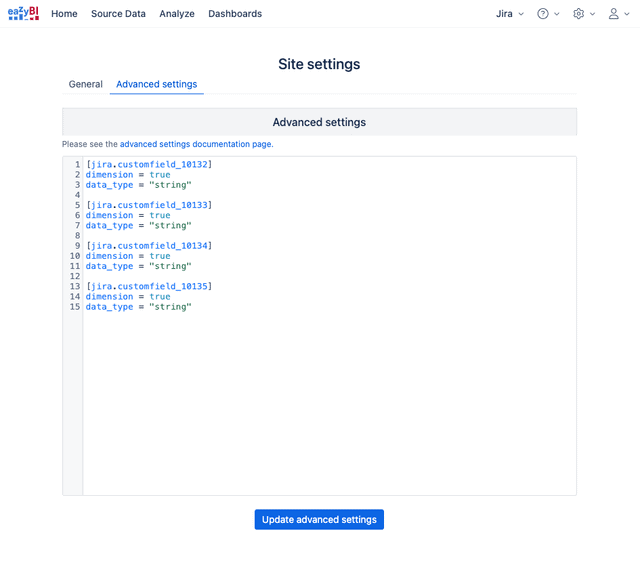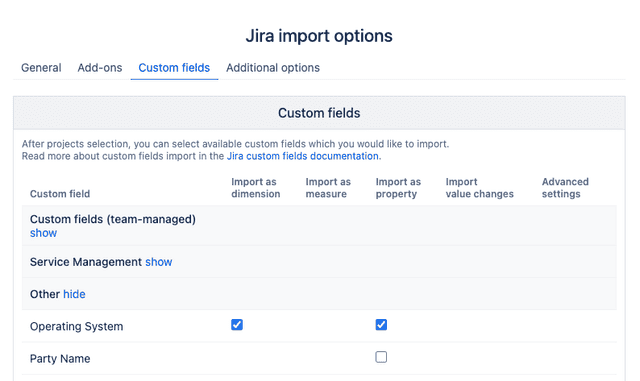In IT Service Management, having a complete view of support data is critical for effective service delivery. Yet, many teams face challenges with fragmented data across systems like CRMs, ERPs, and HR tools. This data sprawl limits the ability of support teams using Jira to gain a full and holistic view of their service operations, which can hinder decision-making and SLA compliance. Imagine if all your external data could be directly accessible within Jira and access to dynamic reporting?
This is where combining Elements Connect and eazyBI becomes invaluable. Elements Connect allows you to bring in data from external sources, like contract details, directly into Jira, while eazyBI provides the tools to analyze and visualize this information in insightful reports. Together, these tools turn Jira into a powerful ITSM hub where support teams can centralize and visualize data from multiple sources in real time, leading to faster and more informed service management.
This blog post will guide you through the setting up of this integration, its benefits and best practices for creating a comprehensive ITSM reporting system in Jira.
Use Case: Displaying Customer Information from a Remote CRM in Jira
Let’s consider a scenario where a support team needs to access customer-related data stored in a remote CRM system while handling tickets in Jira Service Management (JSM). This integration empowers support agents to streamline their workflows, enhance decision-making, and improve the customer support experience.
In this scenario, critical customer details such as contract terms, contact information, and account history are managed within the CRM. Without direct visibility of this data in Jira, support agents face challenges in responding effectively to customer inquiries, understanding their history, and prioritizing issues based on service agreements.
To bridge this gap, the team uses Elements Connect to dynamically link the CRM with Jira. Custom fields in Jira are configured to pull real-time customer data from the CRM, such as contract dates, account status, and contact details. This integration ensures that agents have immediate access to up-to-date customer information directly within the Jira ticket, eliminating the need to toggle between systems.
This setup reduces manual data entry and ensures data accuracy by syncing information from the CRM in real time. Agents can resolve issues more efficiently, while customers benefit from a faster, more informed support process.
For even greater insights, teams can pair Elements Connect with eazyBI to create detailed reports and dashboards. These dashboards can visualize key metrics such as ticket resolution times by customer account, SLA adherence, or satisfaction scores, offering a comprehensive view of service performance. By analyzing this data, the support team can identify trends, prioritize high-value customers, and make data-driven improvements to their service processes.

How to set up Elements Connect and EazyBI for custom reporting?
Step-by-Step Guide to Integration
Prerequisites: Install eazyBI and Elements Connect on your Jira instance
Configuration Steps:
- Create Elements Connect Custom Fields: Create and configure your datasource in Elements Connect, such as CRM or ERP systems, and create custom fields (e.g., “Application Version” or “Operating System”). These fields pull data from external systems into Jira. Note: this use case is possible with custom fields, not Connected Items.
- Map Custom Fields in eazyBI: In eazyBI, configure the custom fields from Elements Connect to be used as measures or dimensions, depending on how they should be visualized in reports. This mapping ensures that the external data is integrated into the eazyBI reports.


3. Import Data into eazyBI: Import your Jira data, including the custom fields from Elements Connect, into eazyBI. This step allows for seamless integration of external data into eazyBI reports.

- Build Custom Dashboards: Once the data is imported, create custom dashboards that combine Jira issue data with external information. For example, a dashboard can display issue types per application version to highlight which versions need more maintenance.
Benefits of Using Elements Connect with eazyBI
- Holistic View of Projects: Integrating external data with Jira gives teams a broader view of project performance, enabling better analysis and insights.
- Enhanced Reporting: eazyBI’s powerful reporting capabilities allow users to create detailed, customizable reports that include both Jira and external data, making decision-making more informed.
- Streamlined Decision-Making: Having all critical data centralized in Jira and eazyBI dashboards helps teams make faster, more accurate decisions.
- Efficiency: Managers can access all relevant data in one location, reducing the time spent switching between different systems and improving workflow efficiency.
Conclusion
For IT managers and Jira admins, managing project data that is spread across multiple systems can significantly hinder the ability to track performance and make informed decisions. The integration of Elements Connect and eazyBI offers a solution by allowing teams to bring external data into Jira and generate insightful reports. This integration simplifies data management, enhances reporting capabilities, and streamlines decision-making processes. By following the steps outlined, teams can unlock the full potential of their data, driving better project outcomes and more strategic decision-making.
You want to know more ? Have look on our Connect documentation
New to Elements Connect? Start your 30 days free trial :


